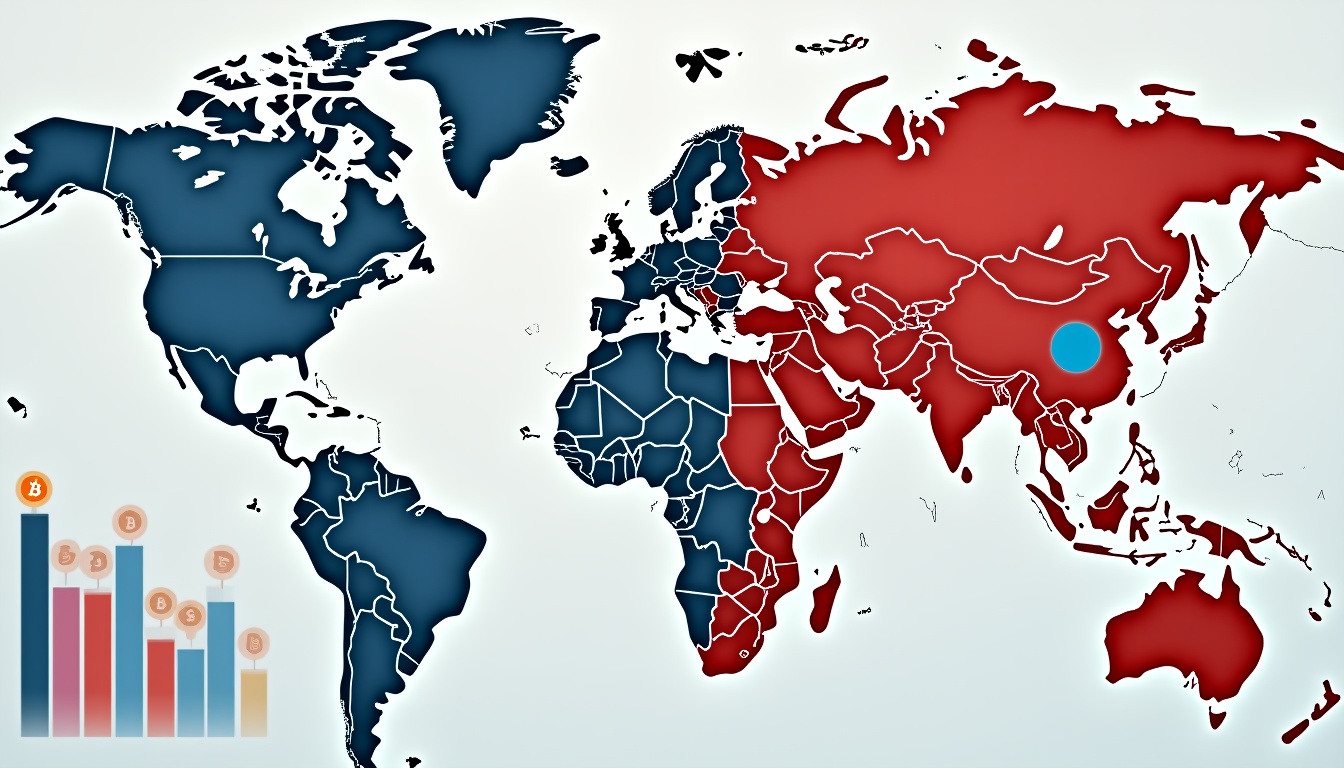U.S. Crypto Trading Share Drops as Asia’s Market Influence Accelerates
A structural shift in global crypto trading patterns is underway, as Asia emerges as a growing force in digital asset markets. Meanwhile, the U.S. share of spot trading in Bitcoin, Ether, and Solana has slipped below 45%, its lowest level in recent memory.
According to data from institutional broker FalconX, the U.S. trading window—which commanded over 55% of global spot volume at the start of 2025—has experienced a steady retreat. This marks the first time since Donald Trump’s pro-crypto election win that the U.S. has ceded this much ground.
At the same time, Asian hours now account for nearly 30% of global spot volume, reflecting a surge in regional engagement, while Europe remains stable. The shift points to a more globally decentralized liquidity profile, as institutional flows diversify across time zones.
“This changing composition could signal rising regional allocations or a strategic repositioning by U.S.-based capital away from spot and toward ETFs or derivatives,” said David Lawant, Head of Research at FalconX.
Strong Price Recovery, Muted Spot Liquidity
Despite the regional rebalancing, digital assets have posted strong gains: Bitcoin is up 40%, Ether has surged 87%, and Solana has climbed 68% since bottoming in April. Yet this price recovery hasn’t coincided with a rebound in trading activity.
Spot BTC volume, which averaged over $15 billion post-election, has remained below $10 billion, according to FalconX—suggesting thinner liquidity even as price action accelerates.
ETFs Drive Capital Rotation
One of the key forces filling that gap is the rapid ascent of U.S.-listed spot Bitcoin ETFs. These vehicles have expanded from 25% to 45% of global BTC spot volume in under two months, marking a significant shift in capital deployment strategies.
Notably, FalconX points out that this ETF volume is predominantly directional—a departure from prior cycles dominated by arbitrage and basis trades.
Since their January 2024 debut, the 11 spot Bitcoin ETFs have absorbed $44 billion in net inflows, with BlackRock’s IBIT contributing $6.35 billion in May alone, its highest monthly total since launch. This suggests a firming institutional bid amid global macro uncertainty and renewed trade tensions.
“ETF adoption is no longer an early-stage theme—it’s now central to how Bitcoin demand is expressed institutionally,” Lawant said. “With geopolitical and fixed income markets in flux, crypto appears to be reasserting its role in the global portfolio rotation narrative.”





